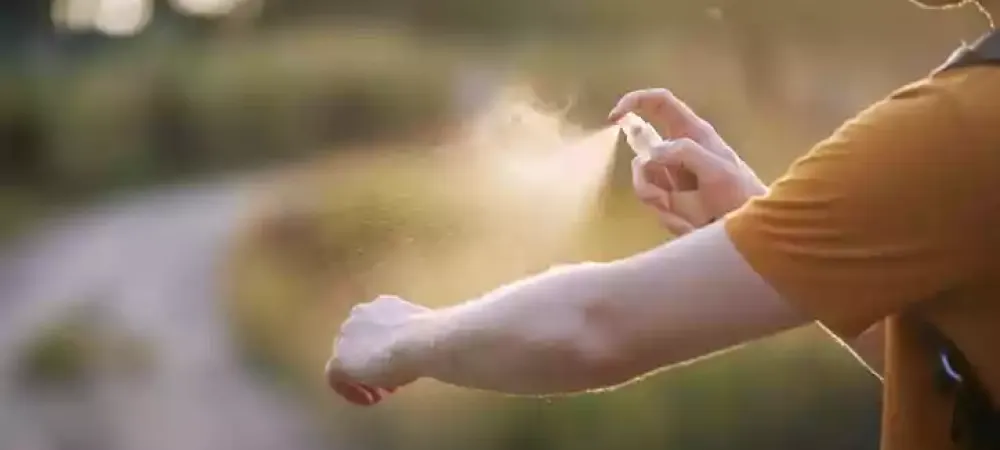DIY Mosquito Spray: Effective and Eco-Friendly Solutions

Mosquitoes are not just annoying pests—they can also transmit diseases like Zika virus, dengue fever, and West Nile virus. While commercial mosquito repellents are available, many of them contain chemicals that can be harmful to your health and the environment. If you're looking for a safer and more eco-friendly alternative, making your own DIY mosquito spray is a great option. In this blog post, we'll explore several effective recipes using natural ingredients that you can easily make at home.
Why Choose DIY Mosquito Spray?
- Natural Ingredients: Homemade mosquito sprays typically use natural ingredients such as essential oils, vinegar, or garlic, which are generally safer for human health compared to chemical-based repellents.
- Environmentally Friendly: Since homemade sprays use natural ingredients, they are often more eco-friendly than commercial insecticides, which can contain harmful chemicals that contribute to environmental pollution.
- Customizable Formulas: You can tailor homemade mosquito sprays to your preferences by adjusting the concentration of essential oils or combining different ingredients to create a formula that works best for you.
- Cost-Effective: Making your own mosquito spray can be more budget-friendly in the long run, especially if you already have the ingredients at home or can easily obtain them from local stores.
- Reduced Health Risks: Homemade sprays eliminate the risk of exposure to potentially harmful chemicals found in some commercial mosquito repellents, which may cause skin irritation, allergic reactions, or other health issues.
What To Consider When Using DIY Repellent
Though DIY sprays can be cheaper and easier to make while being better for the environment, there are a few other things to keep in mind:
- Shorter Durability: Homemade mosquito sprays may not last as long as commercial products, requiring more frequent reapplication, especially in humid or rainy conditions.
- Variable Effectiveness: The effectiveness of homemade mosquito sprays can vary depending on factors such as the concentration of active ingredients, application method, and individual skin chemistry. Some people may find them less effective than commercial repellents.
- Potential Skin Sensitivity: While natural ingredients are generally safer, some individuals may still experience skin irritation or allergic reactions to certain essential oils or other components used in homemade sprays.
- Odor and Residue: Some homemade mosquito sprays, especially those using strong-smelling essential oils like garlic or neem oil, may leave a noticeable odor or residue on your skin or clothing, which can be bothersome to some people.
How To Make DIY Mosquito Spray
Making your own DIY mosquito spray is a cost-effective and eco-friendly way to protect yourself and your family from pesky mosquito bites. In this section, we'll explore some easy recipes for making various types of DIY mosquito sprays, offering you safe and customizable solutions for a mosquito-free environment.
Essential Oils Mosquito Spray
This spray combines essential oils like citronella, lemon eucalyptus, and lavender with witch hazel and water. These oils are known for their mosquito-repelling properties, making the spray effective and pleasantly scented.
Ingredients:
- 30 drops of citronella oil
- 10 drops of lavender oil
- 10 drops of lemon eucalyptus oil
- 2 tablespoons of witch hazel
- 2 tablespoons of distilled water
Instructions:
- In a spray bottle, combine the citronella, lavender, and lemon eucalyptus essential oils.
- Add the witch hazel to the bottle.
- Pour in the distilled water.
- Close the bottle tightly and shake well to combine all the ingredients.
- Spray the mixture on your skin and clothing before going outdoors.
Vinegar and Essential Oil Mosquito Spray
This spray combines apple cider vinegar with essential oils like tea tree, peppermint, and rosemary. Vinegar acts as a repellent while essential oils add extra potency against mosquitoes.
Ingredients:
- 1 cup of apple cider vinegar
- 10 drops of tea tree oil
- 10 drops of peppermint oil
- 10 drops of rosemary oil
Instructions:
- Mix the apple cider vinegar and essential oils in a spray bottle.
- Shake well to ensure the ingredients are thoroughly combined.
- Spray the mixture around your home, focusing on areas where mosquitoes are likely to breed, such as standing water or damp areas.
Garlic Mosquito Repellent Spray
This spray utilizes minced garlic, mineral oil, lemon juice, and water. Garlic contains compounds that mosquitoes find repulsive, making this spray an effective natural repellent.
Ingredients:
- 2 cups of water
- 2 tablespoons of minced garlic
- 1 tablespoon of mineral oil
- 1 tablespoon of lemon juice
Instructions:
- Combine the water, minced garlic, mineral oil, and lemon juice in a blender.
- Blend until the garlic is finely chopped and the mixture is well combined.
- Strain the mixture through a fine mesh sieve to remove any solid pieces.
- Pour the liquid into a spray bottle.
- Spray the solution around your yard, focusing on vegetation and areas where mosquitoes are likely to hide.
Neem Oil Mosquito Spray
This spray blends neem oil, coconut oil, and essential oils like lavender and cedarwood with water. Neem oil is a potent insect repellent, and when combined with other oils, it creates a strong barrier against mosquitoes.
Ingredients:
- 2 tablespoons of neem oil
- 1 tablespoon of coconut oil
- 10 drops of lavender oil
- 10 drops of cedarwood oil
- 2 cups of water
Instructions:
- Mix the neem oil, coconut oil, lavender essential oil, and cedarwood essential oil in a small bowl.
- Add the water to the bowl and stir well to combine all the ingredients.
- Transfer the mixture to a spray bottle.
- Shake the bottle well before each use.
- Spray the solution on your skin and clothing to repel mosquitoes.
How To Apply DIY Mosquito Repellent Spray
When applying DIY mosquito spray, it's important to target areas where mosquitoes are most likely to land or bite. Here are some key areas to focus on when using homemade mosquito repellents:
Exposed Skin
Apply the mosquito spray directly to exposed skin areas, such as:
- Arms
- Legs
- Neck
- Ankles
- Wrists
- Hands
- Feet
Ensure that you cover these areas thoroughly with the repellent, especially if you're spending time outdoors in mosquito-prone areas.
Clothing
Spray the repellent on clothing, including:
- Shirts
- Pants
- Socks
- Shoes
- Hats or caps
Mosquitoes can still bite through thin clothing, so spraying repellent on your clothes adds an extra layer of protection.
Hair and Scalp
If you're spending time outdoors in areas with a high mosquito population, consider lightly spraying your hair and scalp with the repellent. This is particularly useful if you're not wearing a hat or head covering.
Around Entry Points
Spray the mosquito repellent around doors, windows, and other entry points to your home. This can help create a barrier to prevent mosquitoes from entering indoor spaces.
Outdoor Spaces
When spending time in outdoor areas like patios, decks, or campsites, spray the repellent on surfaces such as:
- Patio furniture
- Tents
- Camping gear
- Picnic tables
This can help repel mosquitoes and create a more enjoyable outdoor experience.
Tips for Application
- Avoid Eyes and Mouth: Be cautious not to spray the repellent directly on your face, especially near your eyes, mouth, and mucous membranes. Instead, spray it on your hands and then apply it to your face, avoiding sensitive areas.
- Reapply as Needed: Reapply the mosquito spray every few hours or as directed on the product label. Factors like sweating, swimming, or heavy outdoor activity may require more frequent application.
- Even Distribution: Ensure an even distribution of the repellent on your skin and clothing for maximum effectiveness. Avoid spraying too heavily, as this can lead to excess product buildup.
- Children and Pets: Use caution when applying mosquito spray to children and pets. Choose formulations that are safe for their age and species, and avoid applying near their eyes, mouth, or open wounds.
- Safe Storage: Store the spray bottles in a cool, dark place when not in use to preserve the effectiveness of the ingredients.
Professional Mosquito Control
While DIY spray is a great option, if you are dealing with a bad mosquito infestation, sometimes professional intervention is necessary. For the most effective mosquito removal and prevention treatments, contact Wolfpack Pest Control. With recurring treatments and free re-treatments, we guarantee to keep your yard mosquito-free all summer long! Contact us today.
